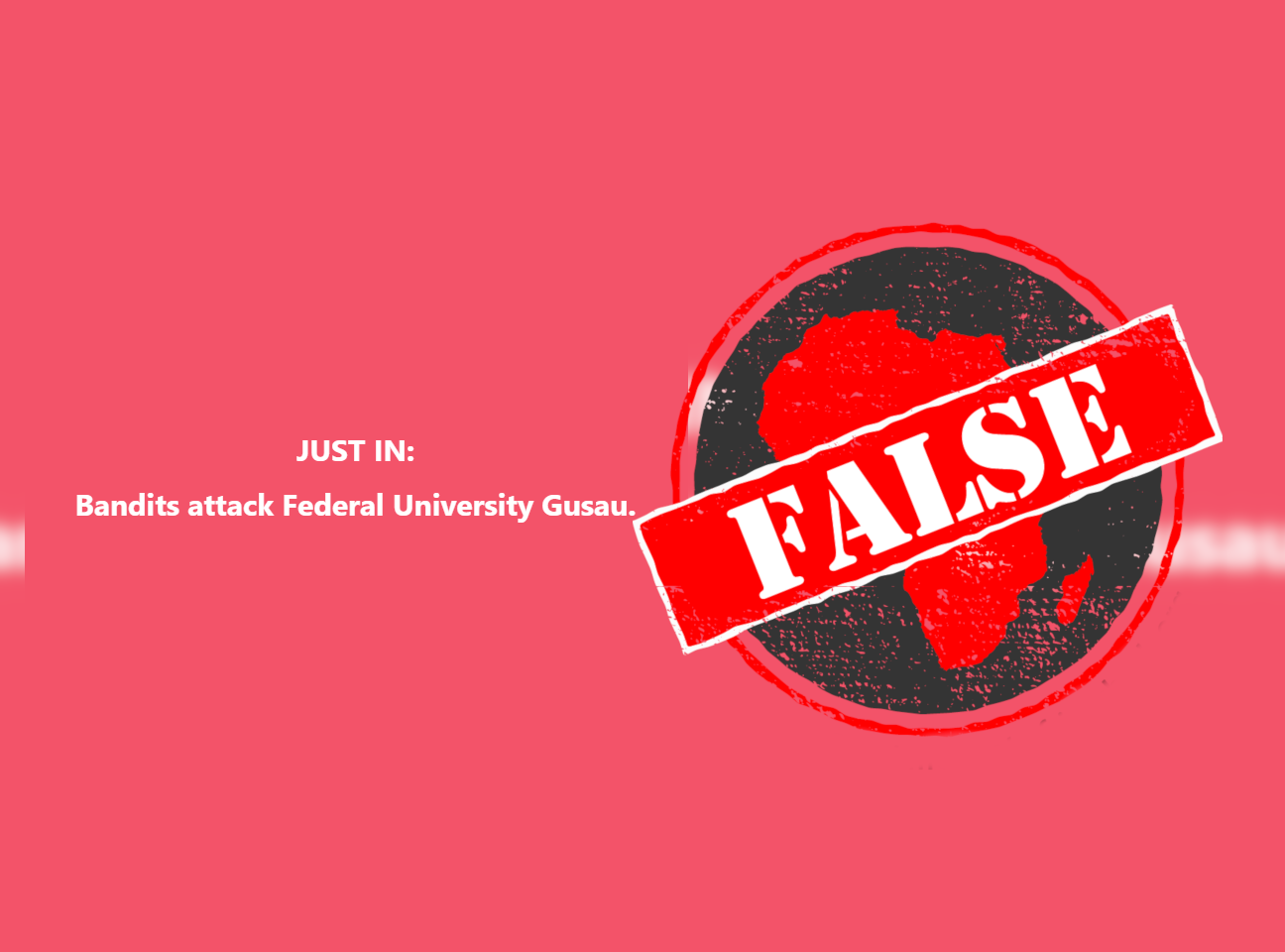“Just In: Bandits attack Federal University, Gusau,” read multiple messages on Facebook and Twitter on 4 March 2021.
The university is a public institution in Gusau in Zamfara state, northwestern Nigeria.
Zamfara state has been at the centre of Nigeria's bandit crisis. In late February, 279 schoolgirls were seized by terrorists from a boarding school in Jangebe town. They were released after four days.
But did anything similar happen at Federal University, Gusau?
Attacks in Zamfara state confirmed, but not at campus
Attacks by bandits were recorded in Zamfara state in the first week of March.
At least 70 residents were abducted in the Maru local government area.
At a press briefing on 5 March a representative for the Zamfara governor said the bandits first attacked on 2 March, robbing residents and stealing fuel for their motorcycles.
The next day, the bandits returned. The spokesperson said: “Unfortunately, they abducted a number of persons, including women and children. Even as we speak, most of the abductees have since returned safely to their village.”

Students at Federal University, Gusau, dispel rumours
Mandela John, a student at the university, told Africa Check he first heard of the supposed attack on the company from an uncle. But when he challenged the relative, he “remained mute”.
John expressed frustration: “Then why spread unnecessary rumours?”
Another student, Ahmad Muye Faisal, also said the information online was a “false alarm raised by students”, but praised the Nigerian army for their quick response to the rumour.
University denies social media reports
In a 4 March press release the university said: “The incident might have occurred as a result of panic by the students arising from the kidnap of the … Jangebe girls and other related issues of insecurity in the state when the students sighted some Fulani men returning from a ceremony. Students got frightened and scampered for safety.”
The university called the social media reports “totally untrue and misleading”.
Republish our content for free
For publishers: what to do if your post is rated false
A fact-checker has rated your Facebook or Instagram post as “false”, “altered”, “partly false” or “missing context”. This could have serious consequences. What do you do?
Click on our guide for the steps you should follow.
Publishers guideAfrica Check teams up with Facebook
Africa Check is a partner in Meta's third-party fact-checking programme to help stop the spread of false information on social media.
The content we rate as “false” will be downgraded on Facebook and Instagram. This means fewer people will see it.
You can also help identify false information on Facebook. This guide explains how.


Add new comment